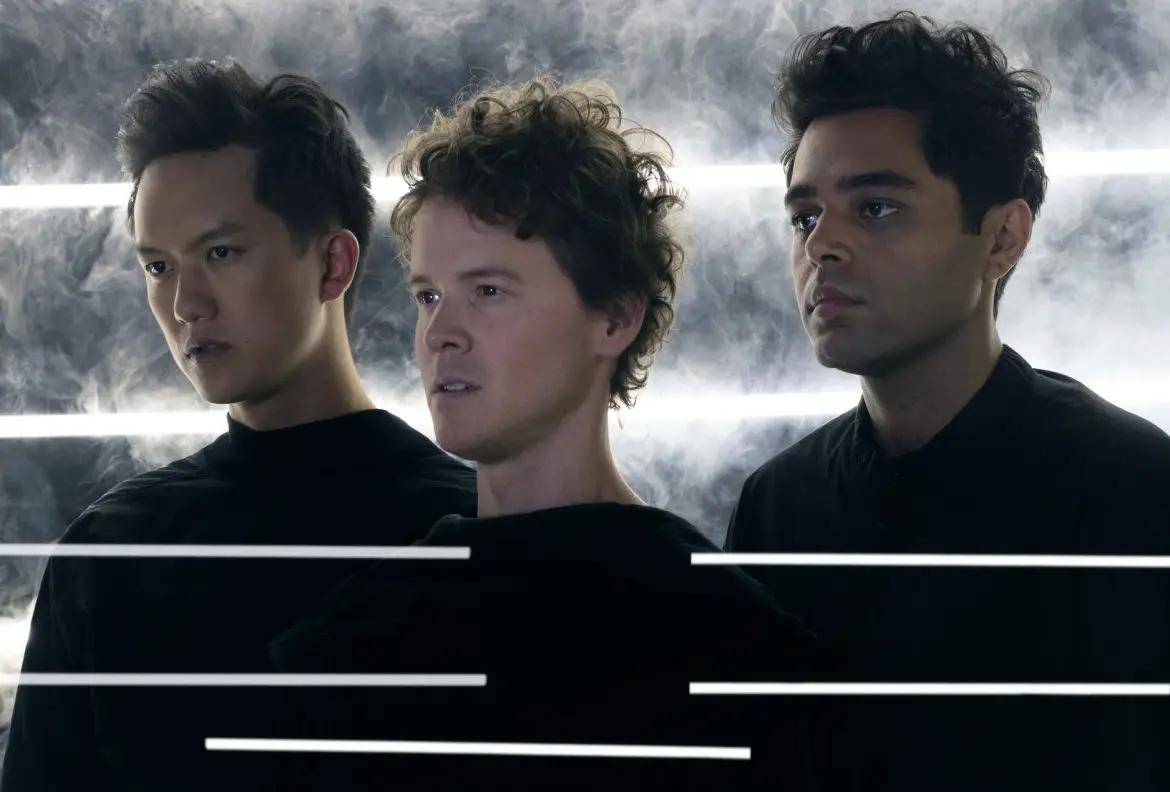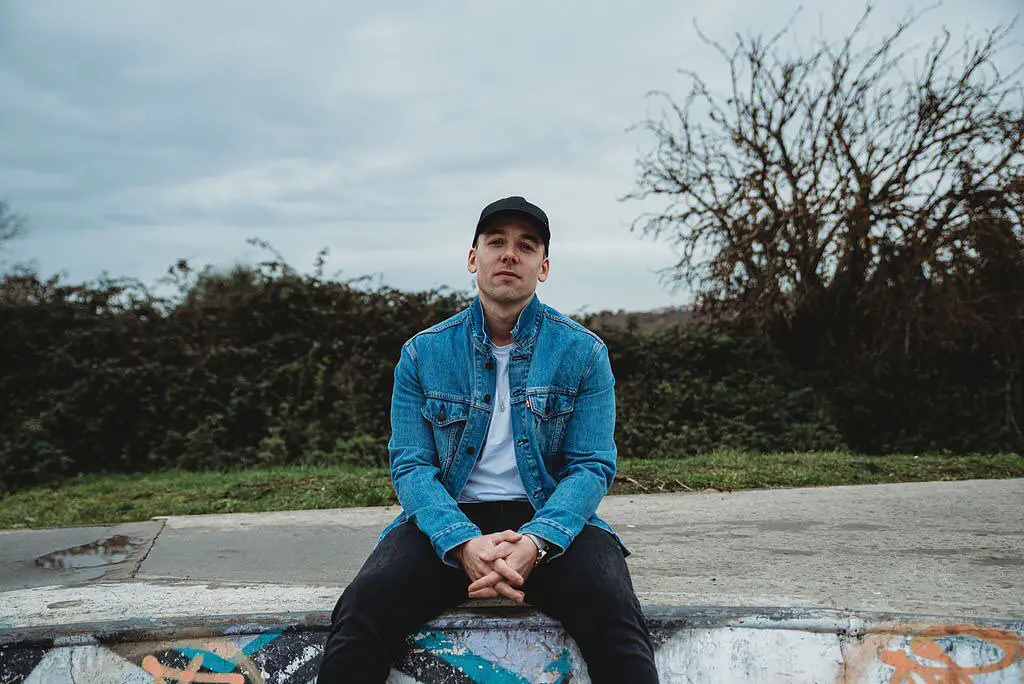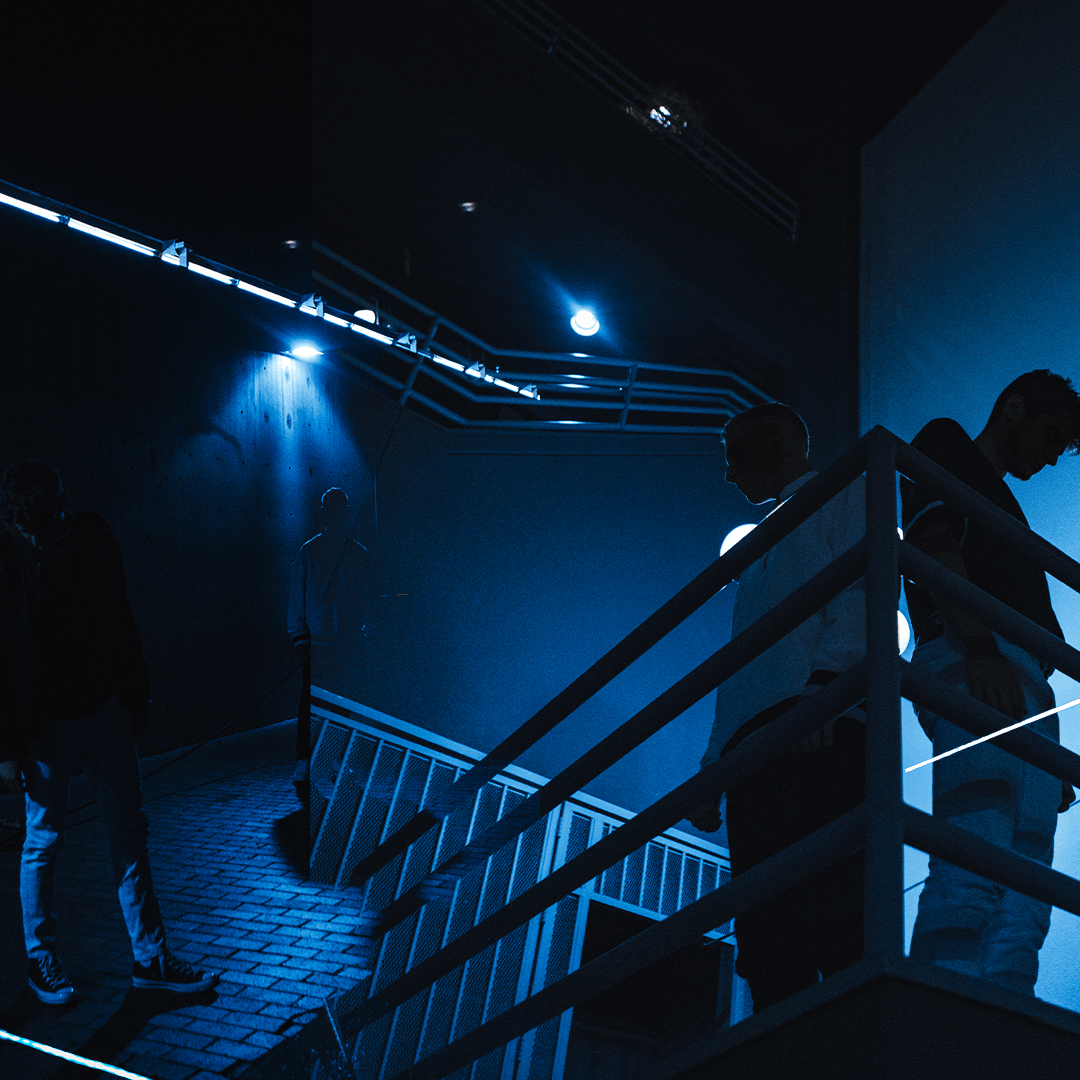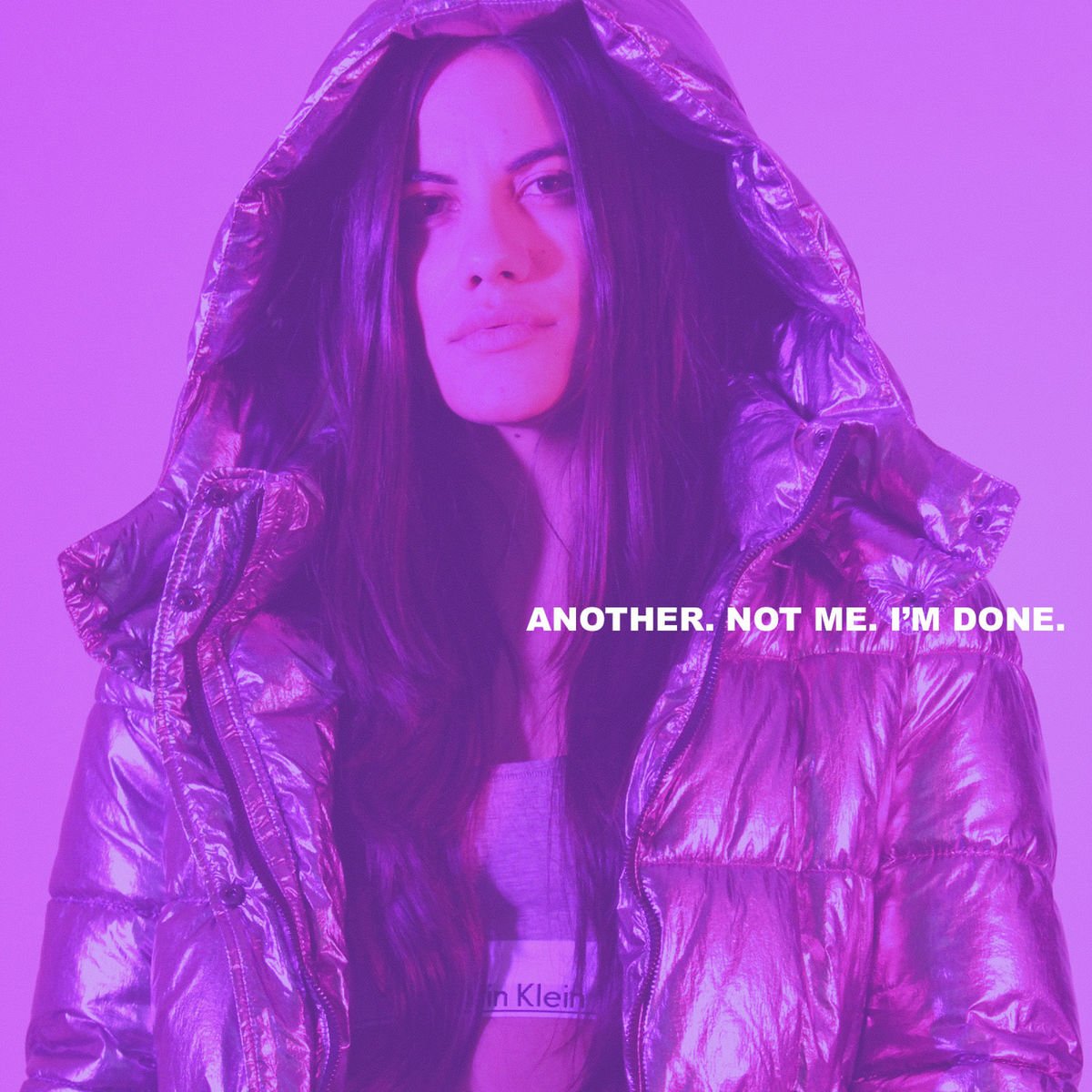The release of ‘Tomorrows III’ marks the end of a trilogy for Son Lux, one filled with some of the band’s most defining sounds, and Atwood Magazine spoke with the trio on the unexpected origins of this body of work.
•• •• •• ••
The greatest aspect of Son Lux for many is how undefinable they are. The trio of Ryan Lott, Ian Chang, and Rafiq Bhatia have a penchant for the elaborate, each new album or project an expansion of sounds that, without fail, deliver a revolution that stirs and intoxicates with their mélange of instrumentation and melody. For their latest project, they may have gone further than expected, creating a library of music that extends for hours. Knowing that this wasn’t destined to be one album, the band opted for something new. The result was Tomorrows, a trilogy that flourishes with its unique flair only Son Lux could accomplish.

It’s a trilogy that exists as a whole. Each part has its own contained narrative, but they all manage to flow into one another with fervent passion and extreme attention to detail. Albums like Bones and Brighter Wounds have delivered some of Son Lux’s most cherished pieces of music, but it’s the Tomorrows trilogy that sets a new precedent. Tomorrows I began a story of pulsing synths that slowly built up into an ethereal finish, setting the stage for what Tomorrows II will bring. Tomorrows II is then released, adorned with celestial-like qualities that allow it to captivate listeners through its lilting rhythms. A welcomed continuation into a trilogy whose finale is a masterclass of artistry and musicianship.
Tomorrows III is an end unlike any other, a full-cycle that breathes life through each note hit. Lott, Chang, and Bhatia push the boundaries of what a band is capable of, and they did so through unorthodox means, a signature staple fans have come to expect. Undeterred by the pandemic’s limitations on distance (the trio used to all live in Brooklyn, NY. Now Chang resides in Dallas, TX, Bhatia in Brooklyn, NY, and Lott in Los Angeles, CA) the trio tackled their latest project unknowing that they would create a stockpile of music, but like with most things, they went with the flow, exploring what new avenues they could take.
Nearing the final hours, the band opted for a trilogy approach, creating an expansive narrative that sees each member’s unique personality and musical styles coalesce in a succinct and gorgeous manner. Templates and plans aren’t the band’s style, preferring to be inspired by what is going on in the moment. The results speak for themselves. Tomorrows III releases April 16, and ahead of its release, the trio spoke with Atwood Magazine on the journey this trilogy brought, detailing the highs and lows, the stories behind the tracks, and even the humble beginnings of how the solo ventures of Lott morphed into an incomparable trio that ceaselessly stuns with their evocative and bewitching harmonies.
Dive in and explore the album and trilogy’s creation in our exclusive interview!
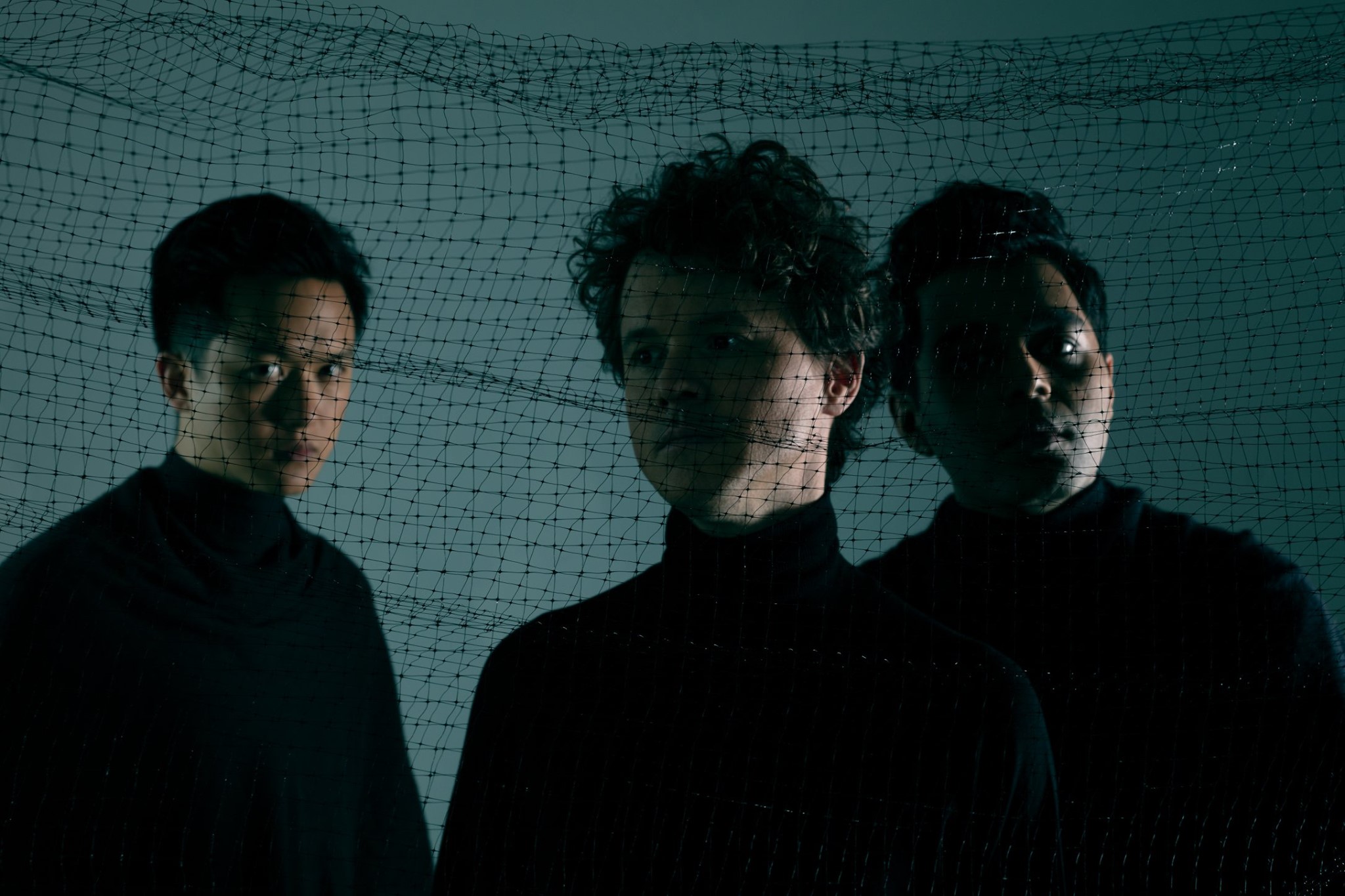
A CONVERSATION WITH SON LUX

Atwood Magazine: First off, wow, there is a lot to unpack with Tomorrows III – in a phenomenal way. But first, the trilogy is complete. How does it feel finally having it all out there?
Chang: To have it done is… well… it’s funny because we’re also working on some others… we’re working on a film score right now. So it’s like we’ve kind of just been in this constant state of working on stuff together. And in a way, even though that really is like a big, huge chapter being closed in terms of being done with a trilogy, it feels like we just like kept going in a way. And also there’s gonna be on the horizon, there’s a lot of… there’s gonna be sort of like reworks of Tomorrow’s material across the board from all three volumes.
So we’re kind of still like engaging with that material. And, like, we’re also looking into doing some live video stuff, so very much so feels like we’re in that zone and just like working with each other closely, but it does feel like… it does feel like an accomplishment because it’s a lot of music to be putting out in the world and a lot of music that I think I can say all three of us feel very proud of that. And the other aspect of it that’s unique compared to releases in the past is that we’re, I guess a little bit less so with Tomorrows III, but, in general, with these volumes, it’s been really cool to finish them and then release them pretty soon afterward.
Typically, you finish an album and then you hand it in to the label and there’s this long schedule where we have to get vinyl made and all this stuff before releasing, but that hasn’t been the case for this. Until now, which there will be by vinyl down the line, but just releasing things digitally first, yeah.
So, with Tomorrows III, it provides such a great close to this trilogy, this journey, and, to me, feels like one of the most expansive sounds – completely grand soundscapes. Knowing that this album would be the close, how did you approach it, and was there a certain sound you wanted to attribute to it?
Lott: Well, the whole project was a process of discovery that was happening as we were releasing it. The impetus for most of the material began, before Volume One was released, but and well before and was in kind of extensive development. So we had the ability to forecast a bit what the full trip layout would be of the project, but by necessity, and sort of our preference, was to finish them one at a time.
Finish [Tomorrows] I, release it into the world as we’re working on [Tomorrows] II. Then release into the world as we’re working on [Tomorrows] III and allow that process of completing each one assists in the development and completion of the next. We let ourselves learn stuff in [Tomorrows] I, get better on [Tomorrows] II, get better in [Tomorrows] III. But also design, as we went along, a type of connectivity that we discovered along the way.
We looked for opportunities to develop a relationship between all the parts. And that was done in a learning process rather than having everything out, laid out on the table and assembling the puzzle, exactly the way we wanted it in advance. There was… there was more improvisation involved.
So then was the trilogy planned at or was it a ‘’let’s see what happens’’ type of deal?
Lott: That’s a great question because we had so much material and we quickly realized what we were making wasn’t an album but rather a season of work. We explored different iterations and at one point we were like talking about six EPs or something. We did have to settle on the format earlier in the process and that was really helpful. The moment we were able to just like make that decision… it was kind of a relief.
Chang: I think we decided that a year ago or a bit over a year ago. It wasn’t that long ago.
Lott: I don’t think it was a year ago.
Bhatia: It was less than a year ago because that’s when we were in LA, sketching out six EPs. So it was the later in the year because then the first album came out in July. Maybe April? It was very soon before music started coming out that we actually figured out what the format even was gonna be.

Well I think the plan worked out because there are some incredibly memorable tracks here, and I’d like to dive into a few of them if that’s cool with you all?
All: Let’s do it!
Starting with ‘’Unbind’’ I was hooked. It was this spiral into almost guttural playing during the midsection and yet it flowed so well. And then it ends on such a lush note. What made you go with this track as the start to the album?
Chang: We made that decision after the first two albums had already at least been created. I think we were kind of trying to not repeat ourselves in terms of how we were ordering things. We don’t typically start with a track that’s that demanding in a way or kind of intense. We usually tried to ease things in a little bit more. But I think given the fact that it’s part of a three-volume album, they kind of give us room to explore different types of sequences. And so I think that was that decision was made after the first two had already been done.
Lott: That that piece of music was written in its skeletal form a while back, and we recorded a string quartet for it where we had them all play in unison, all four parts, and then quintupled everything. So there’s an assembly, there’s like a huge, massive string that we sort of created through multi-tracking. But one of the things we did is we had a normal type of performance and then we had what we call a drunk performance, where we instructed the quartet to basically pretend that they were increasingly drunk as they performed each take, and then washed up or amassed a sort of a wash of drunken strings that sort of begin to contaminate the good ones, you know, the sober ones.
For a while, that that sort of… that’s like the kind of the process that’s happening over the course of the song, but that’s just the sort of seabed below two unedited performances by Ian and Rafiq Where Ian tracked first his drum performance. And I think that our approach was that this was like… we were watching that video already when he was or was that just for repeat?
Bhatia and Chang: Yeah.
Lott: So we had this documentary pulled up on the big screen and in the tracking room, and it was a clip of where it just playing on loop of a pride of lions attacking a baby elephant. And, basically, drawing inspiration from…
Bhatia: I don’t think it was a baby elephant, just a young elephant.
Chang: Slightly less brutal [laughs].
Bhatia: And also, to contextualize, it was a pack of desperate lions and they were starving, and they would never go after something as dangerous as an elephant. But, like, they basically have no choice. And so they risked their lives to see if they can eat. At first, the elephant is shaking them off but then eventually succumbs. We were trying to see if we could kind of capture the arc of that in some way. And through the layers of improvisation.
Now that I have that lens… yeah.
Lott: Yeah, sorry if that fucks it up for you [laughs].

No, if anything it elevates it. I respect that. And speaking of elevation, ‘’Plans We Make’’ is really elevated with Kadhja’s presence, even if subtle at points. She has an ethereal quality to her voice that I think plays incredibly well into your sounds. Was she someone you wanted to work with?
Chang: It’s a companion piece of “Plans We Made” on the first volume, which she’s actually already on as well as background vocals. And so we initially engaged her… Actually, it’s kind of interesting. ”Plans We Make” and “Plans We Made” used to be one track, but now they’re split into two tracks. So when we did “Plans We Made” with her, you know, she tried a bunch of vocals and we worked that in but then we kind of wanted to do something with her on what we thought was the second part of the song where she kind of took the lead vocal, but then we kind of at some point made the decision that there should be two separate things.
In doing so also giving her more time to kind of do writing that she… the time that she needed to write lyrics and stuff like that. You guys can correct me if I’m wrong on this, but that’s sort of how that came about. So it actually was a conversation that was started pretty early on. And then when she sent in what she wrote ”Plans We Make,” we kind of built the track around that.
Lott: We knew from the start that the project we wanted to involve other voices in supporting roles but also in lead roles. And that’s something that’s unique about this Tomorrows project. Other voices have always been a strong and important part of Son Lux material, but I feel like we intentionally upped the ante in that regard and especially on [Tomorrows] III where we invited more voices into the lead role, and I assumed a sort of a backseat in pockets of the record.
‘’Come Recover’’ quickly became of the pieces I repeated most. There really is this inexplicable quality to it that… well I was just enamored from start to finish. What did the song creation process look like for this one?
Lott: That one started, like a lot of the songs on tomorrow, its infancy way back at the end of 2017, right after we had finished and turned in Brighter Wounds. And so right up until just shy of a week from turning in the final record, that song was still in extensive development. It slowly evolved and stayed put for a while and then slowly evolved in and stayed put for a while and essentially underwent an extensive overhaul right at the very last minute, so the way that that song iterates on the record is actually quite different than it felt the entire… for the years really that it developed.
It actually started with… a couple of the most earliest elements in it that still remain in the final are bowed piano which is like piano strings bowed with like dental floss or some sort of bow likes string, an instrument a custom instrument built out of PVC pipe and, and a bass clarinet mouthpiece, and some samples of a well-known composer and of a well-known piece of music that I won’t tell you.
We’ll keep the mystery.
Lott: So that’s where it started. And then it just kind of bloomed and shifted from there. But those zones are still in the final take. I will say one thing about that song that’s kind of interesting is that it will rear its head again in a very different way in two very different iterations: one in the deluxe box set, and another in an entirely different project that we’re working on.
So we can expect some longevity with this one, I like that. Last song I want to dive into is the finale – ‘’Vacancy.’’ I was put at ease when listening. There is a tranquil quality to it, for me at least, that made it easy to sink into and simply float. How did you approach this song, and did you know it was going to be not only the close for the album but the trilogy as a whole?
Bhatia: That was an early decision actually. If you go back and listen to how Tomorrows I starts, you’ll recognize that we purposely made it cycle so that feels like the next day started kind of.
Lott: Listen to the chorus of “Vacancy” and then listen to “Dissolve,” the first track on Tomorrows I. We actually had to have decided that really early, that was one of the only songs we had a strong feeling about its placement across all the records.
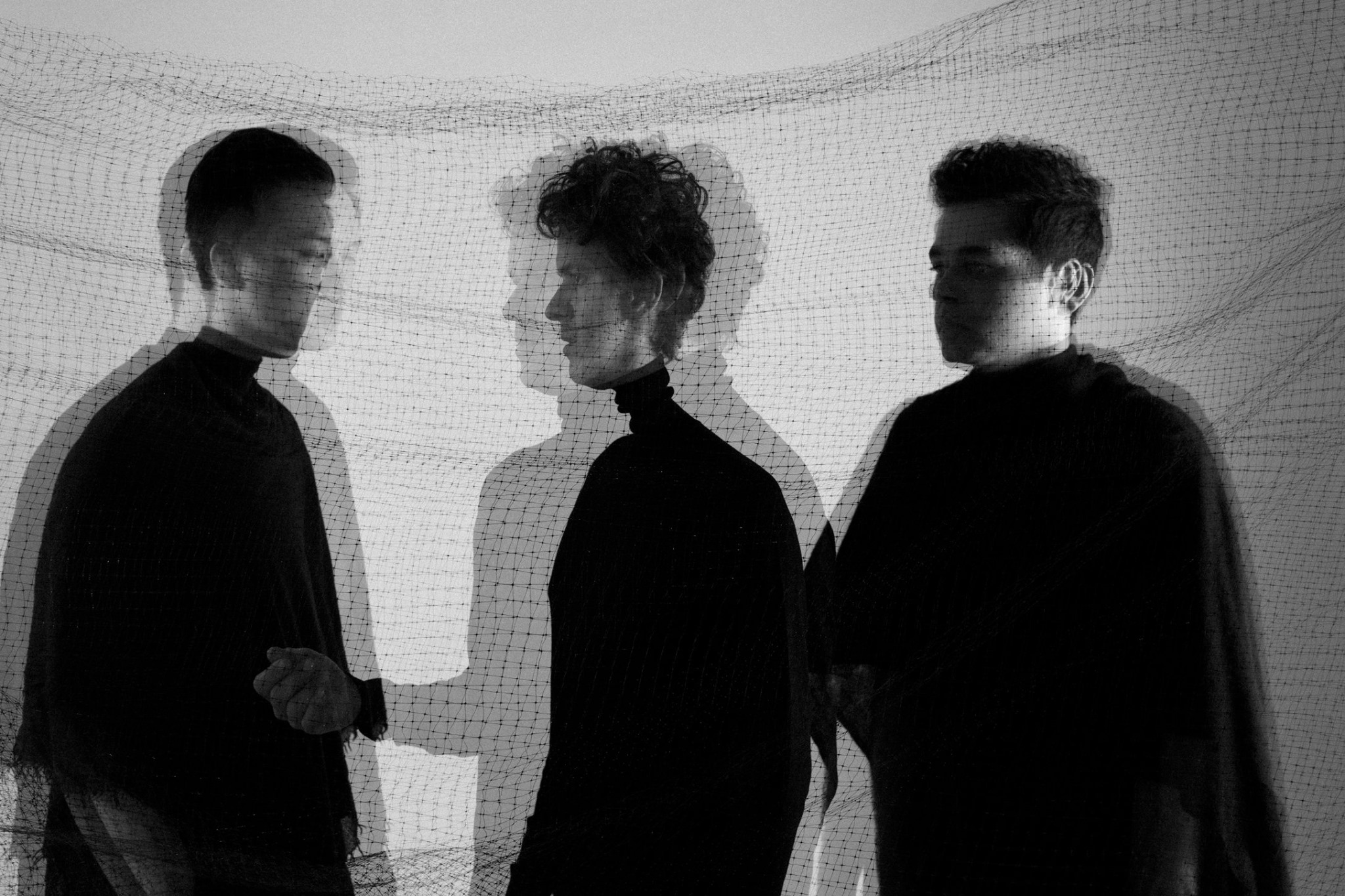
The musical journeys of each of you are varied, unique, and deep. With you Ryan starting Son Lux as a solo venture, Rafiq your extensive list of artists you’ve worked with along with your own solo material like the recent Standards Vol. 1, and then Ian with your own solo music with Belonging, or even going back further with your time as a drummer on the vampire jazz group Father Figures...
Chang: Oh my god how do know about that?! That’s amazing.
I actually have some Father Figures memorabilia.
All: What?!
Yeah yeah, there was this little USBeak thing you all sold.
Chang: Oh shit that’s crazy! Oh my god. So Father Figures… we did a Tiny Desk ages ago and that was one of the things that Ryan saw when he was looking for a drummer for Son Lux for the live show.
Bhatia: It’s also the first time I saw you play drums that was not playing music with you was when Father Figures, my band, and Dawn of Medi did a triple concert at Littlefield to nobody. Like 10 people there.
Chang: How did you know about that? You’ve known about it for a while if you have that USBeak.
I used to do a lot of deep dives on Bandcamp and when looking into jazz records Father Figures popped up. When I ordered it, actually, I don’t think there were any left. I remember I got this note that said ‘’hey, we didn’t think anyone was going to buy this but we can still make you one if you want.’’ So of course I said yeah.
All: [laughs]
Lott: That’s amazing! That’s such a cool story.
Watch: Father Figures Tiny Desk Concert
It’s a treasured piece I have for sure. So anyway, you all have such rich backgrounds in this industry, so what have been some of your biggest obstacles and triumphs in getting to this point?
Chang: One of the biggest triumphs as a band we had, very recently, was that Timberland posted on Instagram a track he is making that samples “Plans We Make” and that kind of blew all of our collective minds. But we can talk about some of the hardships. There’s plenty of those, especially from when we were touring Lanterns. There was one show that we played where Rafiq couldn’t be on stage for it because he was throwing up in Sweden.
Bhatia: Yeah, that was the first tour we ever did. How many shows?
Lott: Seven shows and all on same-day international flights.
Bhatia: That’s right. And I got sick day one. I was broken. And that was the last time I was sick like that.
Chang: There was also the Seattle heatstroke one. You had a barf bucket behind your amp.
Bhatia: Yeah, and then there was a wet towel over my head like a boxer [laughs] and a giant fan pointed at my face. It was at the Crocodile [A Seattle venue], so I’m imagining you get it.
Oh I get it. Once you walk in there… it can get bad with no AC.
Chang: It was also an unusually hot day in Seattle, but there’s also the taxi story.
Lott: Oh my god! That one is the most crazy. We did this really special show in Austria where we had all these additional players, like a small little small orchestra, and we spent a few days rehearsing and working on these arrangements. But then we had to go take this lucrative gig in Romania. That was actually the biggest show we’ve ever played. Gobs of people, just insane, insane amount of people. So it’s an opportunity we couldn’t turn down. But it was risky because it meant we had to do rehearsal earlier, fly to Romania, fly back and then do the Austria show. And sure enough, there was an airline strike. Or something like that maybe. There were basically no flights going to where we were going or anywhere.
Chang: It was funny because we weren’t the only ones sulking. Mura Masa was there sulking and just like “fuck” with everyone else.
Bhatia: Everyone was so bummed out and then there was Mura Masa sulking with his pelican and his crew. But we went to see if we could rent a car. And because Romania is outside of the European Union, and for various other reasons, we would have had to get all of this paperwork notarized and filled out in order to, like, even rent, and also the rental places were closed because it was Sunday morning. There was no way we were going to get there by our own means.
Lott: So then our tour manager and stage deck, he goes out to outside to smoke. He’s standing there, smoking a cigarette, ran outside the taxi stand. And it dawns on him that we’re going to take taxis from Romania to Budapest.
Chang: Which is like halfway, a halfway point between where we need to get to. And we had a driver in Austria that was with us for the rest of the run that stayed there while we popped out to do this show. And he drove from Austria to Budapest. To pick us up there. It was an eight-hour taxi ride that was only 300 euros, so pretty cheap. So I actually I would like to say that that was actually a great triumph [laughs].
Bhatia: And then we went on stage and played so it was incredible. But also Romanian taxis don’t have air conditioning, and they don’t have a limit on how fast they could go because of like conserving fuel and stuff. And so it was… that’s why it took as long as it did because it’s not actually an eight-hour drive. should have been more like five hours or something. But that’s okay.
That is an absolute triumph. On that same idea I mentioned earlier, all three of you are uniquely distinct, and I feel the Tomorrows Trilogy as a whole provides a great showing of that uniqueness through all of the varying soundscapes it blends. How did you approach trying to get it all so cohesive?
Bhatia: I’m not sure if what you’re describing is entirely something that we’re cognizant of as we’re shaping the music, you know? I think we’re really more in the mode of responding to what moves us and trying to keep pushing in the direction of whatever calls us and, you know, as you said, we all have different backgrounds and orientations, but they do kind of line up in certain ways. And the way that we work tends to be very… we’ve talked about this as improvisation but I think maybe another way to put it is that we are listening to what things sound like as we’re putting them together and responding to that.
It’s not like this sort of top-down like, “okay, we have this idea in our head and we’re gonna extract it and then that’s gonna be the piece of music.” It’s more that we start to work with the clay with our hands so that we see something in there that we want to, you know, pull out of it. I think when you talk about things like blending together unlikely synergies between different aspects of each of our respective orientations or like approaches, a lot of that kind of comes from the fact that it’s combining at the very granular level, you know, so because the synergy is in the details the way that it’s… like in the material that we’re making things out of, so it then realizes itself in the shape of a given song or an album or something in a way that would have been very difficult if you had tried to do it that other way that’s top-down, you know, the bottom-up approach gives you like, things flow into and become more embedded in the work in a way that, you know, you couldn’t really plan for necessarily.
Lott: It’s like if you’ve ever worked with an interior decorator. You have a design in place where the rugs goes there, couch goes here, it’ll be this color – you basically mock up what the room will look like and then you source the materials and assemble. It’s essentially the opposite of how we make music. It’s how a lot of people make music these days, though. They demo and they make plans and go in the studio to get all the parts right, but we don’t do it that way. It’s like what Rafiq said – we just listen to each element as it comes together and let it inspire the next. We’ll listen to recording sessions from maybe five years ago but then opportunity arises where we give life to audio that we tracked a long time ago. Part of it is just being open to the idea that a lot of possibilities exist.
For me, that’s how I stay positive in the process. Recognizing that there are so many ways to the process, so many horizons to choose from. It’s not like I have one goal where I’m trying to recreate that computer-generated room.
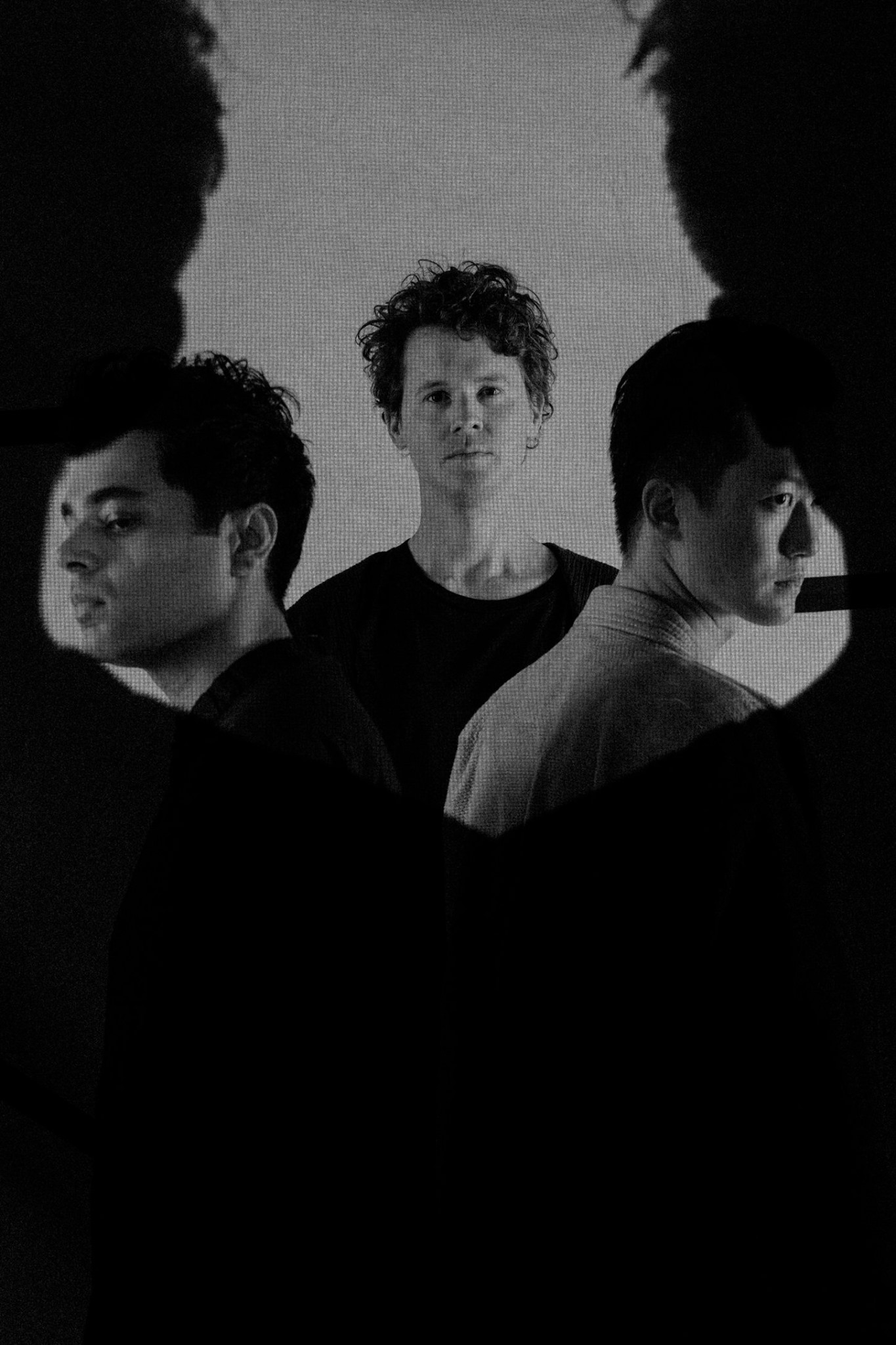
I think that’s so incredible because your approach is so different to many musicians, and yet your music is so in sync and feels like it was planned for years. It clearly works, and I’m glad you found each other because it’s a testament to your abilities.
Lott: That right there is our greatest accomplishment, finding a family together.
Chang: It also seems there used to be a bigger ratio from bands to solo artists. It doesn’t there are many band bands anymore, which is just how a lot of things in music is changing. We managed to continue being healthy with each other, which seems rare, so that’s just great.
Well then I’m glad you all found that Father Figures Tiny Desk Concert.
Lott: Rafiq actually found it! Rafiq and I had been working together for a while and he originally reached out via mutual friends and I was enamored with his music and his solo work – there was a kind of kinship there and also aspects that felt beyond my reach of intuitive understanding, which was intoxicating. So we hung out like this over Skype for a while and eventually invited him to be involved in several projects – on Lanterns, the score for Disappearance of Eleanor Rigby, and others. That was all before I asked him to formerly be a part of the touring band of Son Lux. He was a non-negotiable for me.
He is an open-minded musician who thinks well beyond his instrument. But he has a knowledge and understanding of his instrument that goes beyond normal, and I knew he could bring things to life with his guitar that I couldn’t. I also knew he was part of this collective of musicians so I asked him to help me find one or two other people that could help me put a band on stage. So he gets all the credit for finding Ian. Once I saw his Father Figures performance and then some other performances with Matthew Deer where there was no drum kit at all, he demonstrated such different types of musicianship. It was great because I wanted both at the same time [laughs]. He was a total sweetheart, and you have to be careful you take on the road, and I come to discover he is the king of touring.
Eventually, this felt fruitful, so I thought “these are great guys and I want our ideas on stage.” And then the identity of Son Lux was changed forever.
Well I hope this was a nice ego boost for you, Ian and Rafiq. Anyway, even though this was not a planned trilogy, were there any unexpected challenges popped up when making this large collection of music?
Bhatia: There was a lot of unexpected stuff but most of it worked out for the better I would say. Like you said, we didn’t really set out for a trilogy, so I guess this format of the trilogy was the biggest challenge, and trying to find the best way to send this to audiences. We had around two dozen drafts of what it could look like. And there was you this, you know, global pandemic that, well… yeah. It has been difficult to anticipate this for everyone. But here we all are making things, and it’s nice because we already had a well-established system of making music from a distance which made us very fortunate relative to peers and friends of ours.
Now that Tomorrows III is just about released, is there already immediate plans for what’s to come for Son Lux, or will you have a moment of peace and just enjoy the fruits of your labor?
All: [laughs]
Chang: There will be some relaxing in the later summer maybe. Right now we’re pretty full-on working on another project. It’s a monster one, so we’re deep in the thick of that. When things calm down, unsure what I’ll do, but I’m sure it’ll fill up.
Lott: Yeah, it’s gonna be crazy. Within this past year, we will have created and released hours of music, and so a part of it, for me, is going to be a bit of reeling from that. It’s a lot of music to let go of, which I think is a really healthy thing. Personally, I feel like it’s going to help me pivot artistically and creatively and get really fucking open-minded about lots of stuff because it’s like we just made one record. There is still so many ideas in that direction I want to explore. We did so many crazy-ass creations and now doing this crazy film score with tons and tons of directions. So I’m for a type of pivot that I otherwise wouldn’t be able to do after a project.
— —

Connect to Son Lux on
Facebook, Instagram, Twitter
Discover new music on Atwood Magazine
? © Djeneba Aduayom

